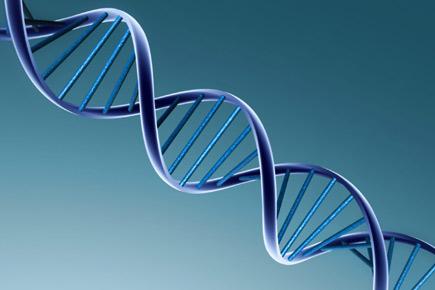According to research, people are more likely to pick mates who have similar DNA - a strong reason for tying the knots other than religion, age, race, income, body type and education.

New York: Stop the fight and tell your spouse that you both are more than a perfect match - an ideal genetic match!
ADVERTISEMENT

According to the research, people are more likely to pick mates who have similar DNA
According to research, people are more likely to pick mates who have similar DNA - a strong reason for tying the knots other than religion, age, race, income, body type and education.
“It is well known that people marry folks who are like them. But there has been a question about whether we mate at random with respect to genetics,” said Benjamin Domingue, a research associate at University of Colorado Boulder's institute of behavioural science.
Individuals actually are more genetically similar to their spouses than they are to randomly selected individuals from the same population.
To prove their point, Domingue and his colleagues examined the genomes of 825 non-Hispanic white American couples.
They looked specifically at single-nucleotide polymorphisms, which are places in their DNA that are known to commonly differ among humans.
The researchers found that there were fewer differences in the DNA between married people than between two randomly selected individuals.
In all, the researchers estimated genetic similarity between individuals using 1.7 million single-nucleotide polymorphisms in each person's genome.
The researchers compared this with the phenomenon of people with similar educations marrying - known as “educational assortative mating”.
They found that the preference for a genetically similar spouse, known as “genetic assortative mating”, is about a third of the strength of "educational assortative mating".
“We could further explore whether similar results are found between married people of other races or whether people also choose genetically similar friends,” Domingue noted.
The study appeared in the journal Proceedings of the National Academy of Sciences.
 Subscribe today by clicking the link and stay updated with the latest news!" Click here!
Subscribe today by clicking the link and stay updated with the latest news!" Click here!






